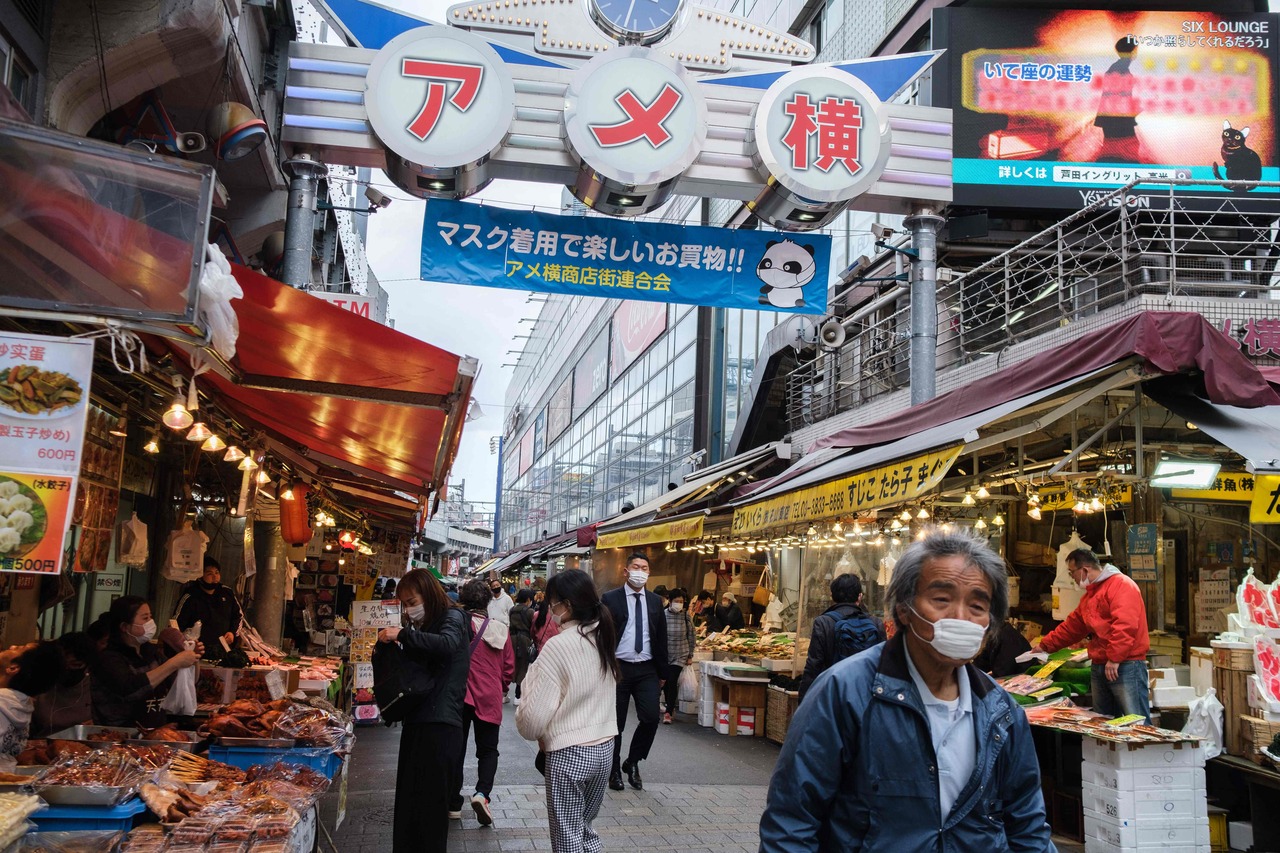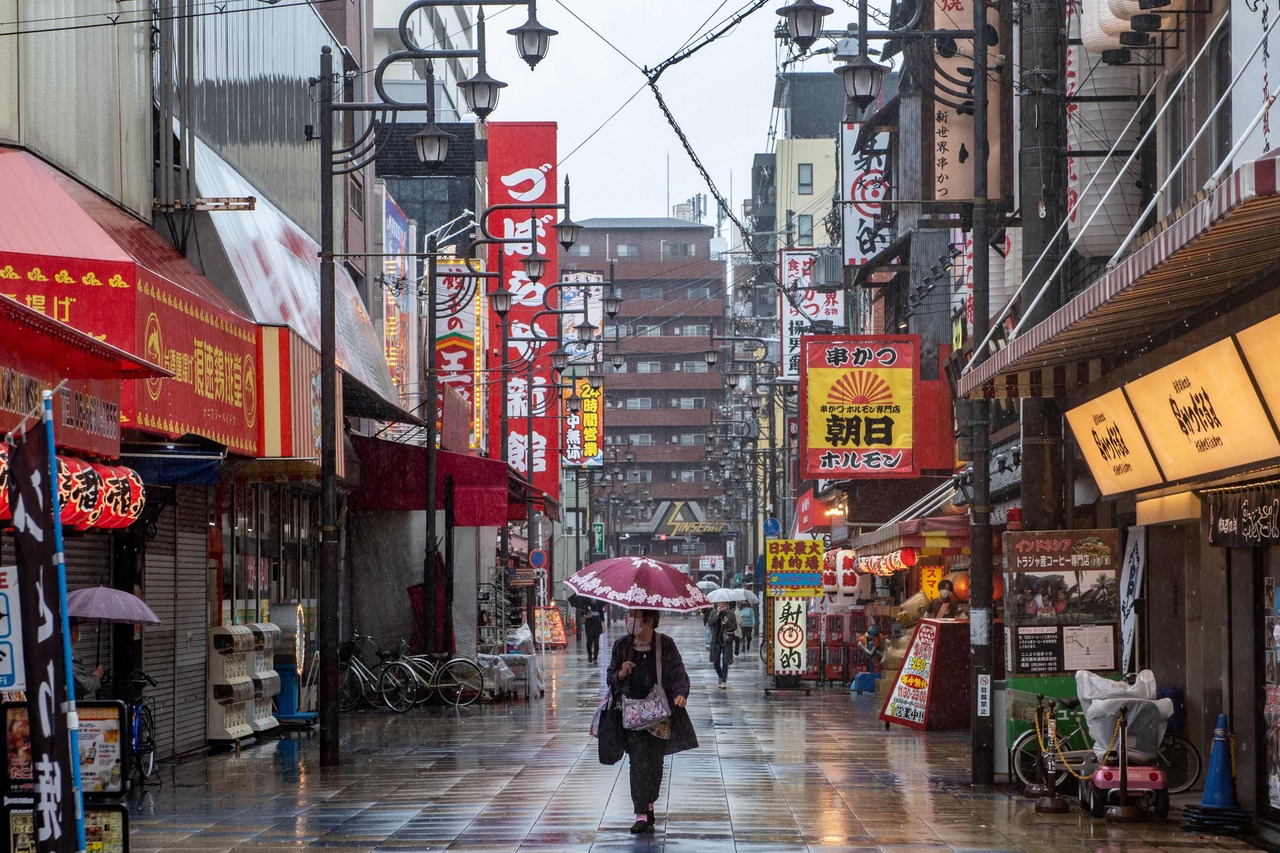Japan PM Suga announces state of emergency for Tokyo, Osaka and two other areas
Sign up now: Get ST's newsletters delivered to your inbox

The new state of emergency is set to run from April 25 to May 11, 2021.
PHOTO: AFP
Follow topic:
TOKYO - Japan will enter its third state of emergency from Sunday (April 25) to May 11 in a make-or-break gambit by Prime Minister Yoshihide Suga to bring Covid-19 under control with the clock ticking down on the Olympic Games.
Public patience is fast running thin over measures that have been criticised as halfhearted and reactive. Mr Suga was forced on the defensive several times in an oft-uncomfortable news conference on Friday (April 23) where he bowed deeply in apology for "causing inconvenience once again".
Several questions got under his skin, such as how he could - in one breath - repeatedly claim he "will do everything in my power as Prime Minister" to protect the public when he lacked the foresight to secure enough hospital beds.
He was also asked whether the so-called "quasi-emergency" was ineffective and how he seemed to be prioritising the Olympics - which will require scores of medical professionals on standby on top of the virus threat - over public health.
Mr Suga said that the International Olympic Committee (IOC) has "already decided to hold the Tokyo Games" after talks with the national committees of the various countries. Japan's job now, he said, is to ensure a safe and secure environment for the Games.
He added that the third state of emergency is meant to invoke "intensive, focused, and powerful measures over a short period of time so as to contain the momentum of the virus". It is timed to coincide with the Golden Week stretch of holidays in hopes of curtailing public movement.
It will cover the four prefectures of Tokyo, Osaka, Kyoto and Hyogo, which together make up about a quarter of Japan's population. While bars and restaurants in these areas are already made to close by 8pm under the "quasi-emergency", this has not been enough to stem infections.
Separately, Ehime prefecture in western Japan will join the "quasi-emergency" group, which also includes Miyagi, Saitama, Kanagawa, Chiba, Aichi and Okinawa. These measures will last until May 11.
The intended 17-day state of emergency makes it far shorter than the 49 days for the first, which lasted from April 7 to May 25 last year, and the 73 days of the second emergency from Jan 8 to March 21.
It is set to be lifted ahead of a planned visit by IOC chief Thomas Bach and is shorter than the "minimum of three weeks" proposed by Dr Shigeru Omi, who heads the government's panel of medical experts.
Dr Omi told reporters on Friday (April 23) that the emergency "cannot be lifted unconditionally on May 11 and will have to be extended if conditions are not met".
The latest emergency adopts comparatively tougher measures than the second decree. Food-and-beverage establishments can still open but must observe a curfew of 8pm with sales of alcohol prohibited.
Leisure establishments such as bars, karaoke parlours and theme parks will be asked to close, as will department stores and cinemas larger than 1,000 sq m. Those that do not comply may be fined up to 300,000 yen (S$3,700). Public transport operators have also said they will reduce the number of train services to cut down commutes.
Events can still be held, though without spectators, while schools will be kept open but extracurricular activities are not advisable.
"If we don't act right now, there is a concern that the virus surge we are seeing in big cities could spread nationwide," Mr Suga said.
The government is targeting alcohol sales, he added, because alcohol serves as a social lubricant that leads to prolonged late-night gatherings with conversations usually with masks off.
In a major embarrassment for his government, the Health Ministry is now a Covid-19 cluster due to one such alcohol-fuelled party. Of the 23 officials who attended the gathering, 12 have tested positive for Covid-19. Another 15 of their colleagues have caught the virus.

<p>People walk along Shinsekai shopping street in Osaka on April 17, 2021,, as record numbers of new Covid-19 infections were reported in the city in recent days. (Photo by Philip FONG / AFP)</p>
PHOTO: AFP
But the focused measures are a cause of concern for the F&B industry.
Kirin Holdings told The Straits Times: "The emergency measures are expected to lead to a further decline in sales to the restaurant industry, including distribution, and we feel very distressed about this. We want them to survive."
Suntory Holdings echoed the statement, saying it feels a "strong sense of crisis" and urging adequate public support.
Mr Suga vowed fresh subsidies of 500 billion yen to help businesses tide over the crisis.
Japan reported 5,113 cases on Friday, bringing its total to 558,857 cases. In the four emergency areas, there were 759 new infections in Tokyo, 1,162 in Osaka, 567 in Hyogo and 130 in Kyoto.

